David McFall R.A. (1919 - 1988)
Sculptor
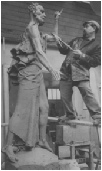
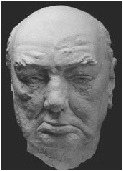
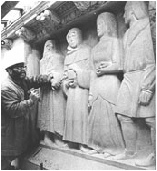
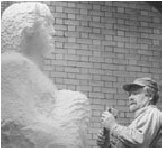
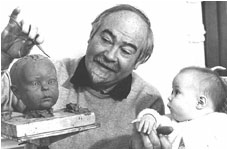
1956/5 Turid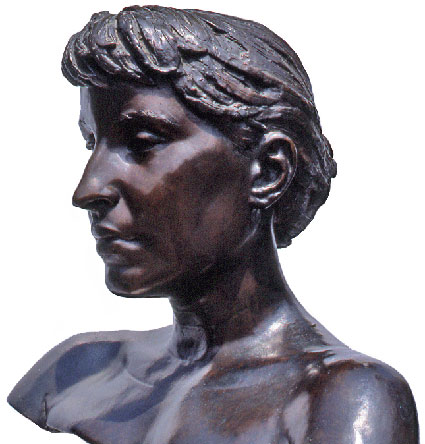
Portrait bust
Height 17½" + 3½ " base
Bronze (cast by Fiorini foundry) signed "DaviD McFall"
Exhibited Royal Academy Summer Exhibition 1960 Catalogue No. 1440
The sitter was Turid, Mrs Patrick B de Mare*
*Camden New Journal - OBITUARY by DAN CARRIER Published: 6 March 2008
Doctor healed soldiers’ mental scars
PATRICK De Mare, who has died aged 92, was a psychotherapist whose work helped promote the use of group analysis. It was to become a key tool in his chosen field. Dr De Mare was born in London in 1916. He wanted to be a doctor, and, after leaving St George’s Hospital medical school in 1941, was signed up in the Royal Army Medical Corps. It was an interesting time to work as a psychiatrist: the First World War had seen ground-breaking work in diagnosing and treating trauma, and with battle casualties arriving home, Dr De Mare had plenty of patients to look after and study.
He served at Northfield Hospital in Birmingham with a group of colleagues who would all make their names in the field of psychoanalysis and psychotherapy after the war. Northfield became the centre of a series of experiments led by eminent physicians Dr Sigmund Foulkes and Dr Wilfred Bion, which studied how to deal with trauma caused by war. Dr De Mare was inspired by the experiments and was appointed consultant psychotherapist at St George’s Hospital. In 1960, Wilfred Foulkes and Dr De Mare set up a private clinic, the Group-Analytic Practice. From this work sprung the Group Analytic Society and then, in 1971, the Institute of Group Analysis. He had moved from Fitzrovia to Redington Road, Hampstead, in the 1960s and away from his work he became known for his love of good food, music and hosting parties. Dr De Mare was an accomplished accordion, banjo and ukelele player. He would play his accordion at bars and cafés in Hampstead. He also had a love of opera, and would play music at his practice in Baker Street. Before he died, colleagues were collating his papers to publish in a collection, which will now be done posthumously. He is survived by his wife Turid, two daughters, six grandchildren and eight great-grandchildren.
All rights reserved
| Animals |
| Busts and Heads |
| Children |
| Churchill studies |
| Lettering |
| Medals coins plates |
| Reliefs |
| Stone carvings |
| Contemporary British Artists |
| On Epstein |
| Picasso |
| The art of portrait sculpture |
| Letters |
| Palliser |
| Son of Man |
| Press |
| Obituaries |
| Memorial address |